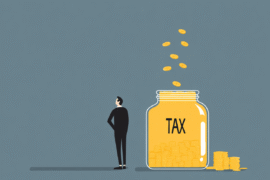This article may contain references to products or services from one or more of our advertisers or partners. We may receive compensation when you click on links to those products or services. Nonetheless, our opinions are our own.
The information presented in this article is accurate to the best of our knowledge at the time of publication. However, information is subject to change, and no guarantees are made about the continued accuracy or completeness of this content after its publication date.
An increasing number of people are considering how companies manage their sensitive DNA data as genetic testing services gain popularity. Services such as 23andMe provide information about ancestry and health, but they also raise concerns regarding data security, privacy, and long-term control over genetic information.
If you’ve ever sent your DNA to 23andMe, you might be wondering if you should delete your genetic data. We look at the possible risks, reasons for deleting, and what to do if you want to remove your data from 23andMe’s database.
- The Growing Concerns Over Genetic Privacy
- Is Deleting Your 23andMe Data the Best Option?
- How to Delete Your 23andMe Data
- Additional Steps to Enhance Genetic Privacy
- Final Thoughts: Taking Control of Your Genetic Data
- Frequently Asked Questions
- What happens when I delete my 23andMe data?
- Does deleting my 23andMe account erase all my genetic data?
- Can I download my DNA data before deletion?
- Is it safer to just adjust my privacy settings instead of deleting my account?
- How can my relatives’ DNA impact my privacy?
- Was there a data breach at 23andMe?
- Can law enforcement access 23andMe data?
- Are genetic privacy laws strong enough to protect me?
- What else can I do to protect my genetic privacy?
- Is it worth deleting my DNA data from 23andMe?
- Recommended Reads
The Growing Concerns Over Genetic Privacy
Unlike passwords or credit card numbers, genetic data is permanent—it can never be changed or replaced. This makes it uniquely valuable not only to biotechnology firms and researchers but also to insurance companies, law enforcement, and even hackers.
| Risk | Why It Matters |
|---|---|
| Third-Party Data Sharing | Genetic testing companies often partner with pharmaceutical firms, universities, and research organizations, raising concerns about data usage beyond what customers originally intended. |
| Limited Legal Protections | While laws like the Genetic Information Nondiscrimination Act (GINA) prohibit health insurance and employment discrimination, they do not cover life, disability, or long-term care insurance. Insurers may use genetic data to assess risk. |
| Law Enforcement Access | Authorities have used genetic databases to solve criminal cases. Even if you never submitted DNA, a relative’s test results could be used to trace back to you. |
| Data Breaches | In 2023, hackers accessed the genetic data of millions of 23andMe users, exposing sensitive family connections and ancestry details. Even with security improvements, there’s no guarantee that future breaches won’t occur. |
These concerns have led many users to rethink their decision to store DNA data with private companies, especially as policies on genetic data privacy continue to evolve.
Is Deleting Your 23andMe Data the Best Option?
Before deciding to remove your data, consider the following:
- Data Retention Policies: Deleting your account does not always mean complete erasure. Some companies retain anonymized or aggregated data for research or legal purposes. Carefully reviewing 23andMe’s most recent privacy policy is essential.
- Downloading Your Raw Data: If you ever need access to your genetic results in the future, download your raw DNA file before initiating deletion.
- Alternative Privacy Settings: If your main concern is data sharing, adjusting your privacy settings might allow you to restrict how your genetic information is used without fully removing your account.
Voted "Best Overall Budgeting App" by Forbes and WSJ
Monarch Money helps you budget, track spending, set goals, and plan your financial future—all in one app.
Get 50% OFF your first year with code MONARCHVIP
How to Delete Your 23andMe Data
If you decide that deleting your data is the best course of action, follow these steps:
Step 1: Sign in to Your 23andMe Account
- Visit the 23andMe website and log in to your profile.
- Navigate to Settings > Privacy Preferences to review your current data-sharing options.
Step 2: Request Data Deletion
- Go to the “Delete Your Data & Account” section under account settings.
- Follow the instructions to request deletion. You may need to verify your identity before proceeding.
Step 3: Confirm the Deletion Request
- Some companies require email verification or additional security checks before finalizing account removal.
- Check your inbox for a confirmation email and follow the necessary steps.
Step 4: Monitor for Final Confirmation
- 23andMe states that data deletion is irreversible, meaning your test results, ancestry reports, and stored DNA files will no longer be accessible.
- If you want written confirmation, consider reaching out to 23andMe’s customer support for further verification.
Additional Steps to Enhance Genetic Privacy
Even after deleting your genetic data, there are additional precautions you can take to protect your privacy:
- Review Other DNA Testing Services: If you’ve used other companies like AncestryDNA or MyHeritage, review their privacy policies and consider similar deletion steps.
- Limit Genetic Data Sharing in Your Family: If relatives have uploaded their DNA, your genetic profile could still be partially accessible. Encourage family members to adjust their privacy settings.
- Monitor Privacy Laws and Company Policies: Genetic privacy laws are evolving. Stay informed about changes that could impact how your data is stored and shared.
Final Thoughts: Taking Control of Your Genetic Data
Genetic testing can tell you a lot of interesting things, but it also puts your privacy at risk in the long run. If keeping your personal information private is important to you, it might be a good idea to delete your 23andMe data. But it’s important to think about the pros and cons of having access to genetic information, like the risks of data exposure, corporate use, and security holes.
Before you make a final choice, read through 23andMe’s most recent privacy policies, download any files you need, and make sure you know how to delete your account. You can help protect your genetic privacy in the future by taking steps now.
Frequently Asked Questions
What happens when I delete my 23andMe data?
When you request deletion, 23andMe permanently removes your test results, ancestry reports, and stored genetic data. This action is irreversible and cannot be undone.
Does deleting my 23andMe account erase all my genetic data?
Not necessarily. While your account and reports are deleted, 23andMe may retain anonymized or aggregated data for legal, research, or operational purposes. Check the latest privacy policy for specifics.
Can I download my DNA data before deletion?
Yes. Before deleting your account, you can download your raw DNA data file from your profile. This ensures you retain access to your genetic information if needed in the future.
Is it safer to just adjust my privacy settings instead of deleting my account?
If your main concern is data sharing, updating your privacy settings may reduce exposure without needing to delete your account. This includes opting out of research programs or data sharing agreements.
How can my relatives’ DNA impact my privacy?
Even if you delete your data, relatives who have tested with 23andMe or other services can still indirectly reveal parts of your genetic profile through familial matching features.
Was there a data breach at 23andMe?
Yes. In 2023, a breach exposed the genetic data of millions of users. This raised major concerns about how securely these companies store and protect sensitive information.
Can law enforcement access 23andMe data?
While 23andMe states it only cooperates with law enforcement under legal obligation, genetic data from relatives may still be used to identify individuals indirectly.
Are genetic privacy laws strong enough to protect me?
Some protections exist, like the Genetic Information Nondiscrimination Act (GINA), but they don’t cover life, disability, or long-term care insurance. Laws vary and may not fully safeguard against all misuse.
What else can I do to protect my genetic privacy?
Consider deleting data from other DNA testing services, encouraging family members to restrict sharing, and staying updated on evolving genetic privacy laws and company practices.
Is it worth deleting my DNA data from 23andMe?
If you prioritize privacy and control over your personal information, deletion can reduce long-term risks. However, you’ll lose access to health and ancestry reports, so weigh the pros and cons carefully.

Reviewed and edited by Albert Fang.
See a typo or want to suggest an edit/revision to the content? Use the contact us form to provide feedback.
At FangWallet, we value editorial integrity and open collaboration in curating quality content for readers to enjoy. Much appreciated for the assist.
Did you like our article and find it insightful? We encourage sharing the article link with family and friends to benefit as well - better yet, sharing on social media. Thank you for the support! 🍉
Article Title: Should You Delete Your 23andMe Data? Privacy Risks Explained
https://fangwallet.com/2025/06/16/23andme-data-privacy/The FangWallet Promise
FangWallet is an editorially independent resource - founded on breaking down challenging financial concepts for anyone to understand since 2014. While we adhere to editorial integrity, note that this post may contain references to products from our partners.
The FangWallet promise is always to have your best interest in mind and be transparent and honest about the financial picture.
Become an Insider

Subscribe to get a free daily budget planner printable to help get your money on track!
Make passive money the right way. No spam.
Editorial Disclaimer: The editorial content on this page is not provided by any of the companies mentioned. The opinions expressed here are the author's alone.
The content of this website is for informational purposes only and does not represent investment advice, or an offer or solicitation to buy or sell any security, investment, or product. Investors are encouraged to do their own due diligence, and, if necessary, consult professional advising before making any investment decisions. Investing involves a high degree of risk, and financial losses may occur including the potential loss of principal.
Source Citation References:
+ Inspo
There are no additional citations or references to note for this article at this time.











































